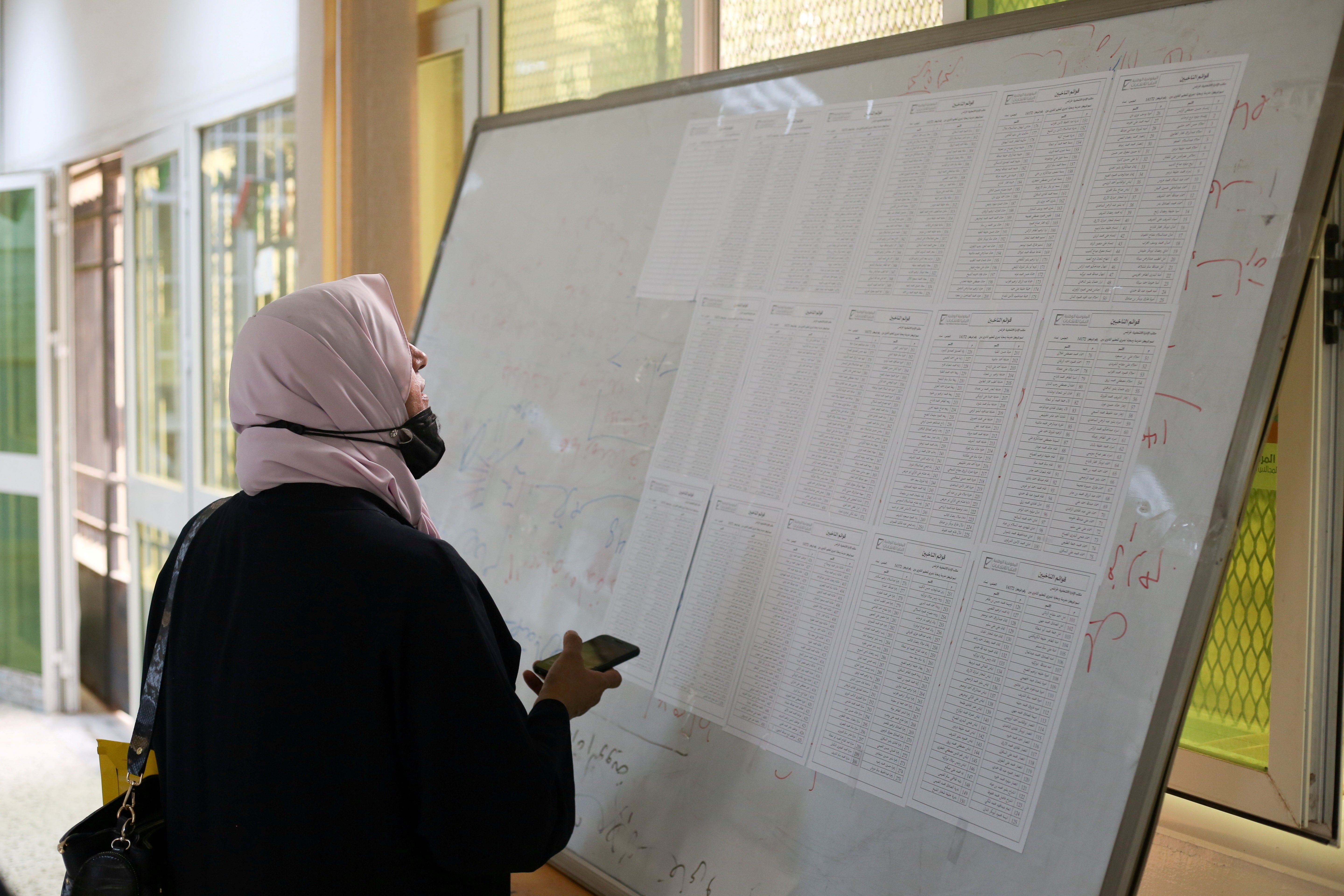Days before Libya vote, election chief tells poll workers to stand down
Few thought elections would happen amid rising tensions and concerns about powers of the next leader

Your support helps us to tell the story
From reproductive rights to climate change to Big Tech, The Independent is on the ground when the story is developing. Whether it's investigating the financials of Elon Musk's pro-Trump PAC or producing our latest documentary, 'The A Word', which shines a light on the American women fighting for reproductive rights, we know how important it is to parse out the facts from the messaging.
At such a critical moment in US history, we need reporters on the ground. Your donation allows us to keep sending journalists to speak to both sides of the story.
The Independent is trusted by Americans across the entire political spectrum. And unlike many other quality news outlets, we choose not to lock Americans out of our reporting and analysis with paywalls. We believe quality journalism should be available to everyone, paid for by those who can afford it.
Your support makes all the difference.The embattled commission charged with organising Libya’s election has ordered the disbanding of its local branches, all but guaranteeing that the crisis-hit country will not hold parliamentary and presidential polls scheduled for Friday.
Imad al-Sayeh, the head of Libya’s High National Election Commission (HNEC), issued a letter on Tuesday instructing electoral committees of the organisation’s local branches to disband.
Hadi al-Sagheer, head of parliament’s election committee, told Reuters that the vote would have to be delayed because there was no time to carry out preparatory steps.
Still, no formal announcement of an election postponement has been made by either the country’s de facto legislature or its executive branch, led by interim prime minister Hamid Dbeibeh, leaving some confusion.
Libya was scheduled to hold United Nations-backed elections for a president and parliament on 24 December, but few believed the polls would come off as planned amid simmering hostilities between rival armed factions and opacity regarding the future powers of the country’s next elected leader.
The oil-rich north African country of six million has suffered through more than a decade of war, deprivation and fragmented governance following the 2011 toppling of longtime dictator Muammar Gaddafi at the hands of Nato-backed armed rebels.
Those militias and their hangers-on immediately began fighting each other for power and territory as waves of warfare convulsed the nation and international powers began dispatching weapons and personnel to their various allies.
World powers including the United Kingdom and the United States have been engaged in a UN-brokered process to stitch the country together back under one government.
Mr Sayeh ordered the electoral workers to remain on standby in case elections are rescheduled.
There have been several rounds of backroom talks over recent days between candidates, factions and foreign powers about delaying the vote and whether an interim government can meanwhile continue in power.
HNEC has yet to release a final list of candidates for office amid fears it could be targeted for approving controversial candidates such as warlord Khalifa Haftar, Gaddafi’s son Saif al-Islam, and Mr Dbeibeh, who reneged on a promise not to run for office.
Nearly 20 candidates had issued a joint statement demanding an answer on the elections, warning that the uncertainty over the vote was "undermining security and stability”.
Several analysts told The Independent last week that the chaos could lead to clashes, whether or not the elections actually took place.
In Libya, the threat of violence is palpable. According to local news reports and witnesses, rival militias were roaming the capital, Tripoli, since early morning, cutting off streets and setting up checkpoints. Universities and schools had been closed and sent students home.
The channel later reported that the University of Tripoli had cancelled all lectures for the day and asked students to return home "due to the security conditions". There were also reports that schools had been closed with teachers asked to send students home.



Join our commenting forum
Join thought-provoking conversations, follow other Independent readers and see their replies
Comments